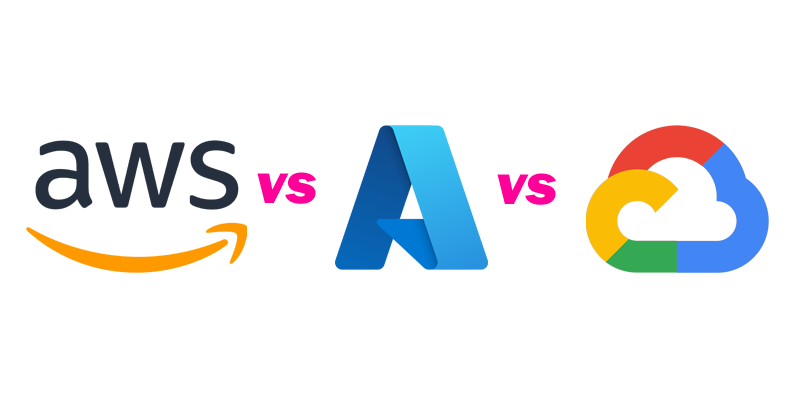AI-powered virtual assistants are changing the way businesses function in this era of digital media. Intelligent tools are highly functional and thereby increase productivity as well as improve customer service, thus automating various operations. We will also explore some of the AI-powered virtual assistant-free features that can enlighten us on the potential these VAs hold for transforming various industries.
The Key Features of AI-Powered Virtual Assistants
AI-powered virtual assistants represent a significant advancement in chatbot technology, offering enhanced capabilities such as natural language processing, machine learning, and seamless integration with various platforms. Here, we investigate each of these key traits and how they enable efficiency as well as innovation.
1. NLP (Natural Language Processing)
Among other features, this assistant is one of the main highlights of an AI-powered virtual assistant that can understand natural language and process it. CVA can understand human language and execute commands by using sophisticated AI products, which makes it a better option for natural interactions. If you are in customer service, for example, that is a huge advantage, as both timeliness and correct answers need to be made every time.
2. Machine Learning Capabilities Service
AI-powered virtual assistants can remember information from previous interactions and be made to learn constantly, improving how they function. Whether it be through machine learning algorithms or risky levers, most platforms gain the ability to analyze historical data of interactions and can adapt one or more responses, grouping them into segments they might serve next.
3. Platform Integration
Integrating virtual assistants with various business applications and tools: New AI automation platforms equip modern-age organizations to seamlessly integrate these AI-powered virtual assistants into most of the known enterprise systems. Be it CRM systems, email platforms, or scheduling software, these assistants can easily integrate with the existing ecosystem and get to work, making everything more efficient.
4. Tailoring Your Brand
Personalization always improves the user experience, and AI-powered virtual assistants can excel in the output format. They can personalize their responses to cater to user preferences and act based on behavior. It can be wide-ranging, especially in marketing and customer engagement strategies.
5. Real-Time Data Processing
IDFAs provide AI-powered virtual assistant with the ability to deliver insights and information in real-time due to their data processing speed. The AI visual inspection systems can work alongside a human inspector, delivering real-time quality control feedback in, say manufacturing.
The Benefits of AI-Powered Virtual Assistant
AI-Powered Virtual Asssistant – Key Benefits
The key benefits of an AI-powered virtual assistant are remarkable, as it provides better customer service and data management and saves costs. These benefits enable businesses to scale their operations and stay ahead of the competition. The following chapters breakdown these core advantages, providing insight as to their impact on business in various sectors.
1. 24/7 Availability
AI-powered virtual assistants work 24/7 to make sure that customer inquiries and tasks are addressed day or night. This is great for international companies that work in a different time zone, leveraging AWS AI products for seamless support.
2. Multitasking Capabilities
They can provide multiple types of assistance at the same time, from answering customer queries to scheduling appointments. With the new invention of multitasking, all such tasks can be accomplished swiftly, integrating with AI products to enhance efficiency.
3. Reduced Human Error
Automating monotonous activities helps AI-powered virtual assistant to mitigate the possibility of mistakes. It results in processing data more accurately and making precise decisions, which is crucial for handling complex AI products and using AI analyzers.
4. Enhanced Data Security
AI-powered virtual assistants contribute widely to improving data security by automating the most likely encryption, privacy, and safety practices. A must when dealing with data like customer-sensitive information.
5. Interacting with Customers on a Personal Level
By enabling these assistants to offer dynamic interactions that are based on user data and preferences, companies can in turn provide a more personalized experience for the customer. This enhances satisfaction and drives engagement with AI products for business.
6. Quick Adaptation to Changes
The fact that AI-powered virtual assistants can evolve with industrial change or customer requirements means they are adaptable to an ever-evolving industry and will remain effective and adaptable in an ever-evolving industry landscape, supported by AI automation platforms.
7. Better Resource Management
Automation of mundane tasks enables businesses to be more efficient with their human capital, such that they can focus on tactical and higher-order activities. This integration can be facilitated through various AI automation platforms and AI open-source projects.
8. Increased Revenue
Again, by enhancing customer service and operational efficiency it comes in the way of increasing revenue or business growth. This impact is especially evident in product development AI and applications of AI in manufacturing.
The benefits of AI virtual assistants across industries
AI virtual assistants offer a cost-effective, short-term solution for industries seeking to maintain high quality and efficiency standards. In the race to become leaders, these advanced tools are being utilized by businesses to provide intended customer outcomes while realizing operational efficiency and innovation. Here is Vue.ai at how AI powered virtual assistant brings value to some sectors.
1. Manufacturing
The application of AI in manufacturing manifests as virtual assistants overseeing production lines, logistics operations keeping inventory in check, and spotting any upcoming maintenance issues that might need to be addressed.
Example: Using another illustration, manufacturers can identify through AI whether machinery will fail and then notify virtual assistants about the prediction so maintenance activities can be scheduled to prevent stopping production.
2. Healthcare
AI-powered virtual assistants help to take care of our health and well-being too as they enable patient care via appointment scheduling and providing medical information and assist in diagnosis through integration with AI Products for Business.
For example: virtual health assistants could be used to remind patients to take their medication at the appropriate time and monitor which improvements were made to their results.
3. Retail
Enhances Customer Experience: Retail businesses implement AI-powered virtual assistants to provide personalized shopping recommendations, inventory management, and customer inquiries.
Example: Retail AI open source projects can be shaped to enable the development of virtual shopping assistants that suggest products tailored to a customer’s preference.
4. Finance
In the finance industry, for instance, AI-powered virtual assistants are being used to open accounts for customers and render advice on their financial investments, in addition to monitoring these customer account activities for potential fraudulent events. This integration also leverages AWS AI products and AI analyzers to enhance financial operations.
Example: Banks and financial services turn to virtual assistants for information on account balance, transaction history, or even personalized finance coaching.
5. Education
AI-powered virtual assistants are being used by educational institutions to assist students with academics, execute administrative tasks, and deliver personalized learning experiences. This use of AI products supports the creation of a more efficient and personalized educational environment.
Example: Universities are using AI-powered virtual assistants to assist students with course registrations, academic resources, and study tips tailored to individual needs.
Conclusion:
AI-powered virtual assistants are game-changers in the business world, offering a blend of advanced technology and practical functionality. They can understand and process natural language, thanks to Natural Language Processing (NLP), making interactions feel more human. These assistants learn and improve over time, thanks to machine learning, and integrate smoothly with existing business tools like CRM systems and email platforms. This integration ensures that operations run more efficiently. By automating routine tasks, AI-powered virtual assistants free up human employees to focus on more strategic activities, boosting overall productivity. They also provide real-time data processing and insights, which is invaluable for quick decision-making. These assistants are available 24/7, offering instant responses to customer inquiries, which enhances customer satisfaction and retention.
FAQs About AI-Powered Virtual Assistant
Q1: What differentiates AI-powered virtual assistants from traditional automation tools?
Beyond what traditional automation would offer, an AI powered virtual assistant can understand and process natural language and along the way learn from interactions to further blend with other AI products. It can perform intricate jobs, cater to custom needs, and grow according to your business standards.
Q2: How can AI virtual assistants enhance manufacturing quality control?
AI is also highly effective as a virtual assistant that can be used to work simultaneously with the kind of AI visual inspection systems in manufacturing, which gives staff an automated second opinion on their quality controls. This system capable of collecting inspection data and detecting failures provides for the maintenance of standardized production systems, thus representing a countless number of AI manufacturing implementations.
Q3: Is it possible to tailor AI-powered virtual assistant for definite business requirements?
Absolutely! You can customize AI-based virtual assistants with the use of some AI open-source projects and AI automation platforms for your business-specific needs. These assistants can be configured to perform all those tasks you need help with, whether it be customer service, data management, or even creative services.
Q4: How do AWS AI services integrate with virtual AI-powered assistants?
AWS AI products provide a wide variety of powerful features that can be used to make an existing virtual assistant much smarter! By combining these tools, businesses can automate intricate procedures for processing massive amounts of data resources so that they can effectively scale their operations with secure and reliable foundations.
A5: What is the function of AI-enabled virtual assistants in product development?
A product development AI can handle timelines, team coordination, and keeping an eye on market trends. With these assistants, businesses can streamline their development procedures and tend to be more innovative.
Q6: In what way does an AI-powered virtual assistant aid in data analysis?
AI-powered virtual assistants can also take advantage of AI visual inspection systems to analyze huge amounts of data. Recognize patterns in the data quickly, generate insights, and support your decision-making with minimal manual effort compared to traditional ways of doing things.





















